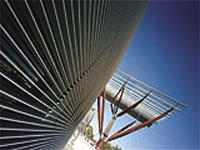This is a hybrid course. It is available to both undergraduate and postgraduate students. The course content, delivery and assessment will be identical for both groups of students.
|
Subject Area: European Studies
This course can also be studied in the following specialisations: German Studies & History
The interwar years were an especially formative and innovative period in twentieth-century European history. Framed by revolutions and the end of the First World War at one end and the Spanish Civil War and the Second World War at the other, the era saw intense ideological and political conflict, socio-economic crises and the development of radical new political movements and regimes (e.g. Bolshevism, Stalinism, fascism and National Socialism), against which liberal democracy struggled to assert itself. The interwar years also witnessed a remarkable array of cultural and social innovation and experimentation (visual arts, literature, theatre, cinema, social theory, sexuality and gender). The course aims to provide an assessment of political, social, economic and cultural developments in interwar Europe. Students will learn central aspects of interwar European history and gain an appreciation of the era's significance for modern Europe. Students will study examples of major political, social, economic and cultural issues and trends and engage with scholarship on the topics.

